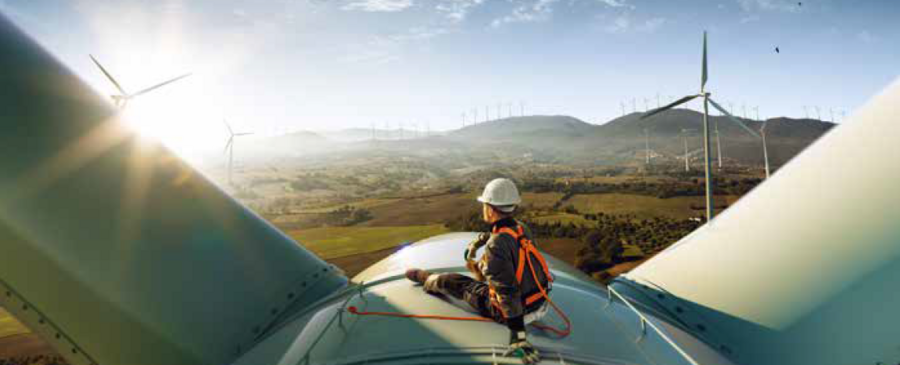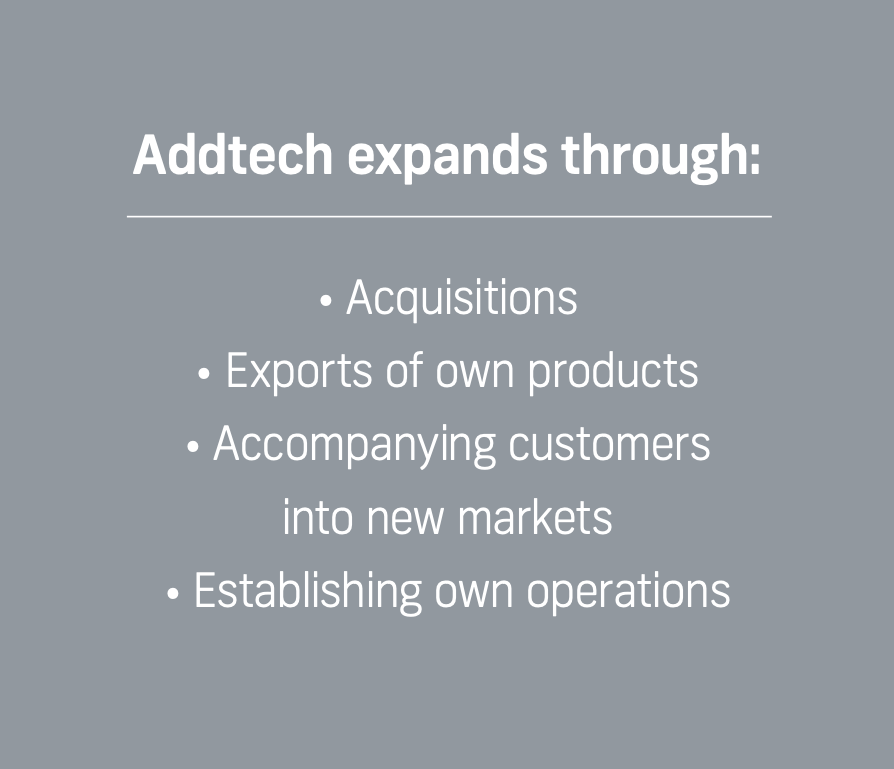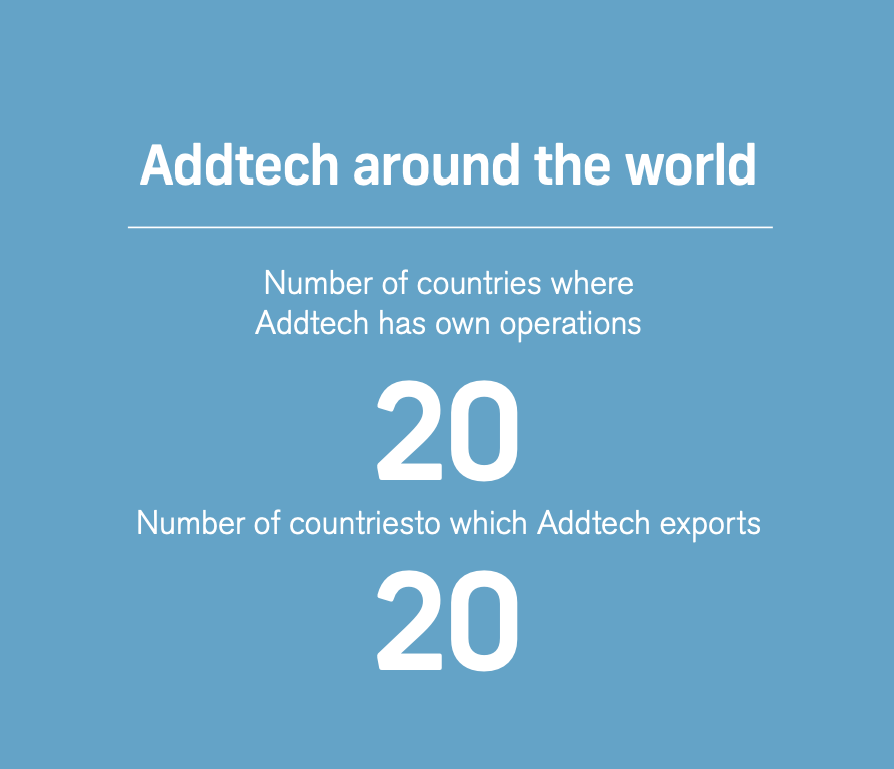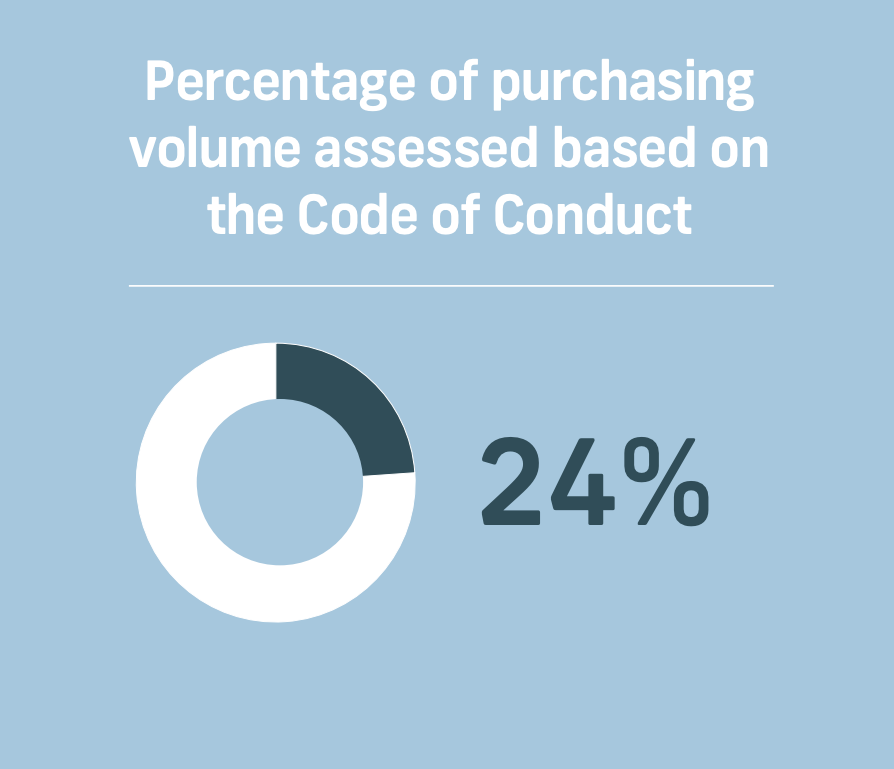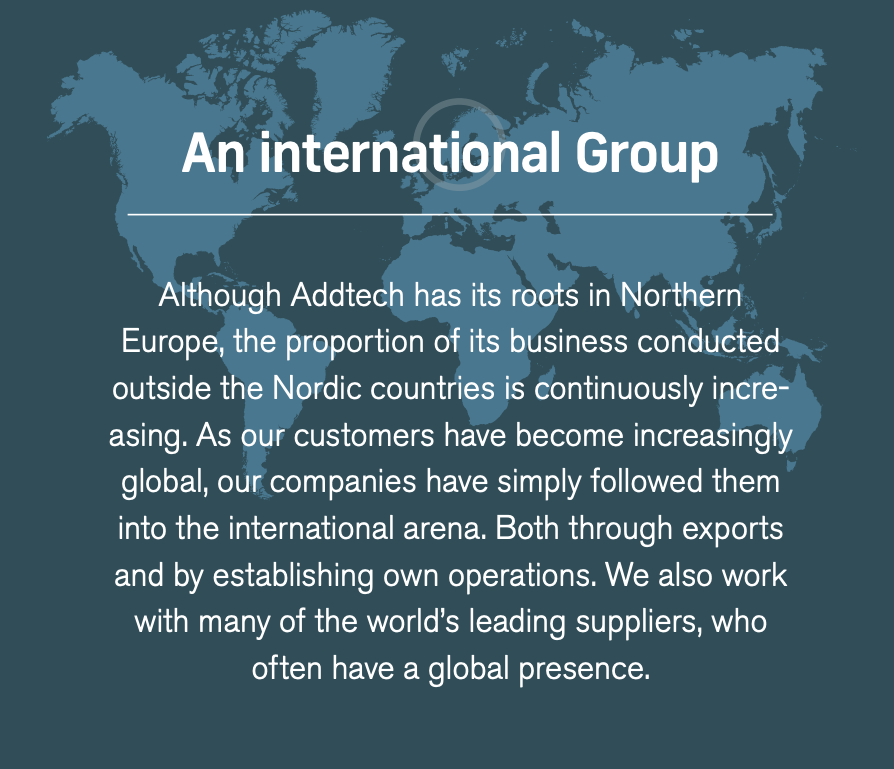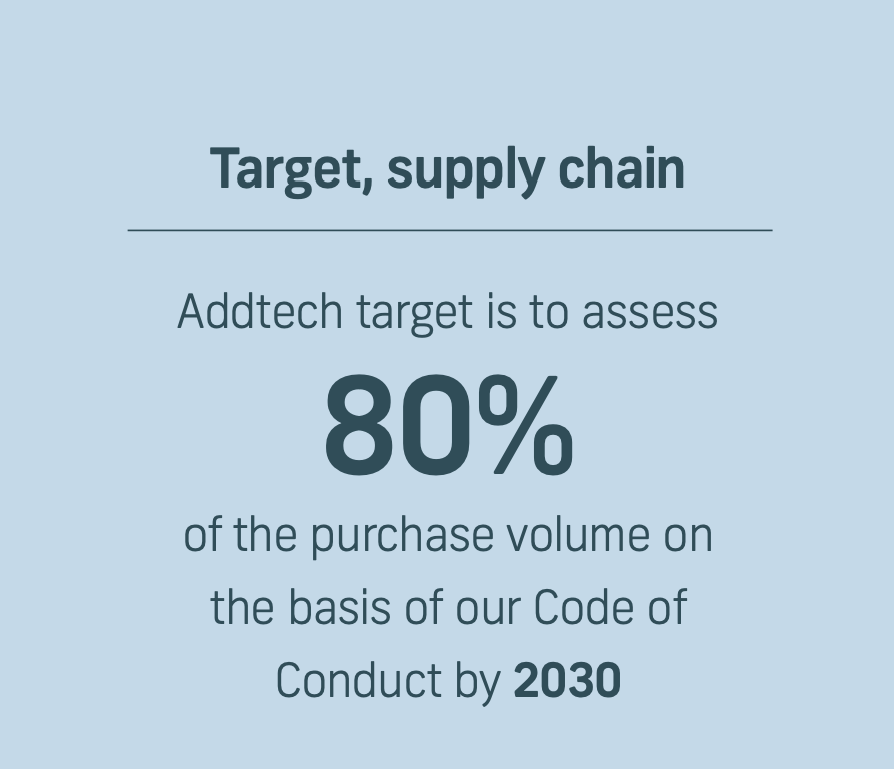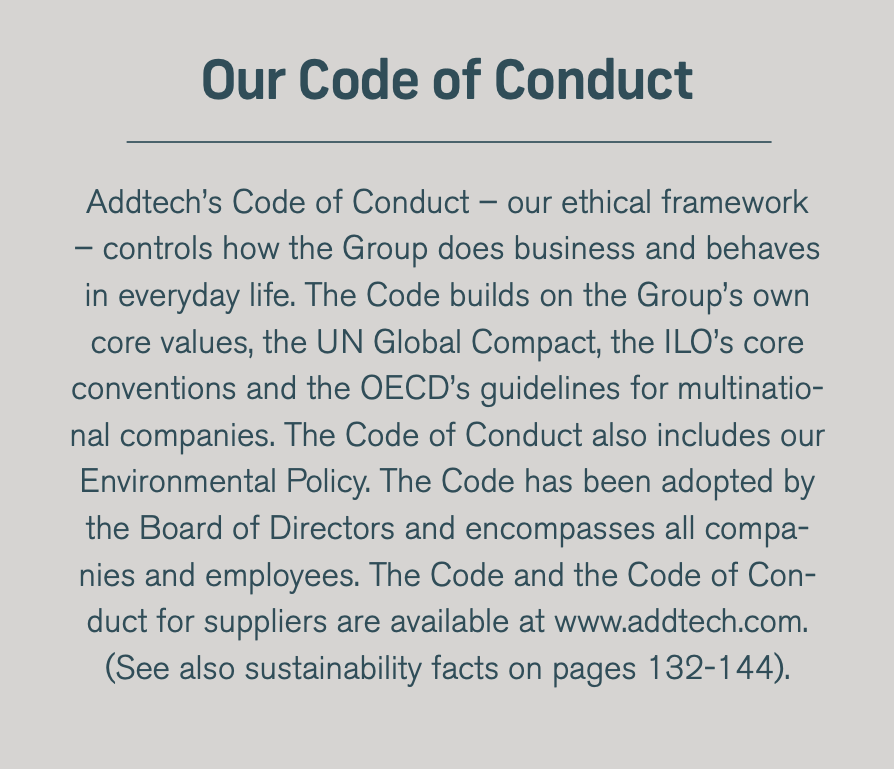SUSTAINABLE SUPPLY CHAIN

OUR RESPONSIBILITY THROUGHOUT THE SUPPLY CHAIN
Addtech’s business volume outside the Nordic region is continuously increasing. Internationalisation brings many opportunities, while the importance of taking responsibility throughout the supply chain also increases. Ensuring a sustainable supply chain is important, both in delivering value to our customers and in contributing to sustainable development.
Addtech has a large number of suppliers around the world and most purchasing is made from non-Nordic suppliers in Europe, the US and Asia. We are also continuously acquiring international companies holding market-leading niche positions. Examples of such acquisitions made during the financial year were OF-Beteiligungs AG in Switzerland, and Impact Air and ESi Controls in the UK. Increasingly, we are becoming an international player in a global market.
Internationalisation also means increased responsibility. It is becoming increasingly important to safeguard good business ethics, our zero tolerance of corruption and the respect for human rights throughout the supply chain. Addtech conducts business based on the internal Code of Conduct building on, for example, the guidelines and international conventions of the UN Global Compact. We also maintain a specific Code of Conduct for our suppliers.
“Our decentralised model means that our subsidiaries live closest to the customers and suppliers alike,” says Lena Ekbom, Head of Sustainability at Addtech. Accordingly, it is the companies that pursue the ongoing dialogue with suppliers regarding sustainability, as well as performing assessments based on the requirements set out in our Code of Conduct, so that everyone takes responsibility for a sustainable supply chain.
Carbex was founded as early as in 1887 and today focuses mainly on the manufacture of carbon generator brushes used in wind turbine generators and medical technology. The company is part of the Power Solutions business area and has suppliers worldwide. The Managing Director of Carbex, Joakim Hedlund, feels that the company must maintain a position at the absolute forefront when it comes to sustainability.
“We have established a process for supplier audits with control documents that we will start implementing as soon as the pandemic is over and we can start visiting our suppliers again. In the process, we will assign points to each supplier and propose improvements in the area of sustainability. Each supplier must also sign our Code of Conduct for suppliers.
Carbex has also had an external party perform a sustainability audit of its own operations to have an assessment of its own status. Although the final verdict was “Very Good”, the ambition is to be even better in some areas.
“Today, sustainability is definitely a decisive means of competition” says Joakim Hedlund. Our customers demand sustainable solutions, which requires that we safeguard sustainability throughout the supply chain. Our sustainability audit process serves as a tool for guaranteeing this.
”A sustainable supply chain is a prerequisite for profitable business”
Many of Addtech’s companies have long-standing and close partnerships with their suppliers. A good example of this is Addtech’s Swedish subsidiary Emcomp, which has had a successful partnership with CBI in South Africa since 1998. CBI is Emcomp’s main supplier of hydraulic magnetic fuses that are significantly more energy efficient compared with traditional fuses.
“Our close partnership means that we at Emcomp enjoy substantial opportunities to develop CBI in a positive direction with regard to priority areas of sustainability,” says Andreas Anselmius, Managing Director of Emcomp. This may involve working conditions or production improvements, for example. That is not to say that CBI is bad at sustainability in any way – on the contrary. We are able to learn from one another to gradually improve further at contributing to a more sustainable world.
Emcomp is about to launch a sustainability development programme together with CBI. The aim is to establish a common focus for our continuous development and improvement of key sustainability parameters.
“A sustainable supply chain is a prerequisite for profitable business,” says Andreas Anselmius. Today, many of our customers focus at least as much on aspects of environment and sustainability as on price and quality. Therefore, it is important that Emcomp and CBI further develop the partnership and that we determine together which sustainability goals should be prioritised and where we need to improve further.
The Addtech Group has set a high level of ambition for all subsidiaries establishing sustainable supply chains and driving issues of sustainability forward.
“The Parent Company has focused very strongly on sustainability of late,” says Andreas Anselmius. At Emcomp, for example, we received help in working through our development plan for the next three years. This included seminars at which we discussed why, at what and how we should further improve in the area of sustainability. In addition to our development programme with our partner CBI, there are other areas in which we can develop and improve – we must, for example, ship our products – from CBI in South Africa to Europe and Hong Kong. Here, we have the clearly stated objective of working with maritime shipping as much as possible, thereby reducing our carbon footprint.
